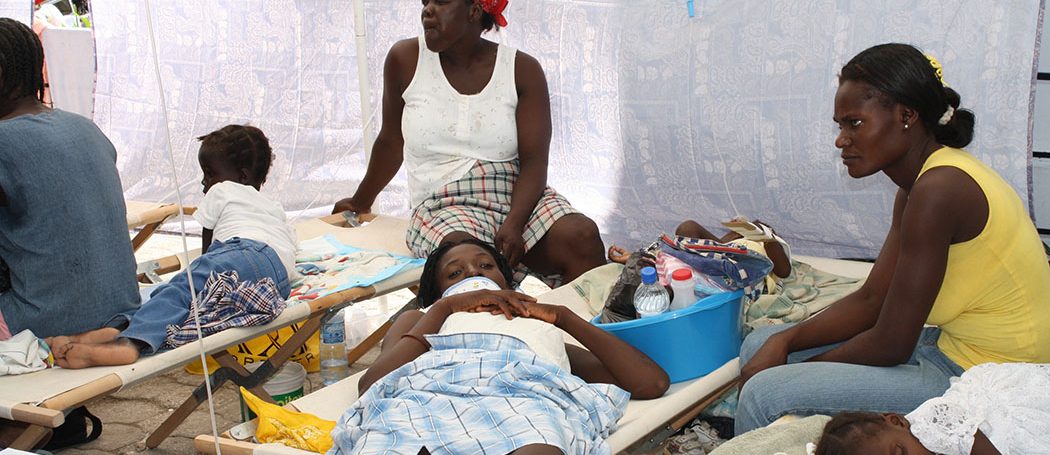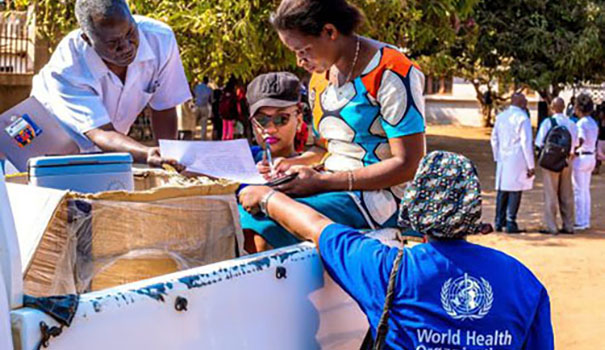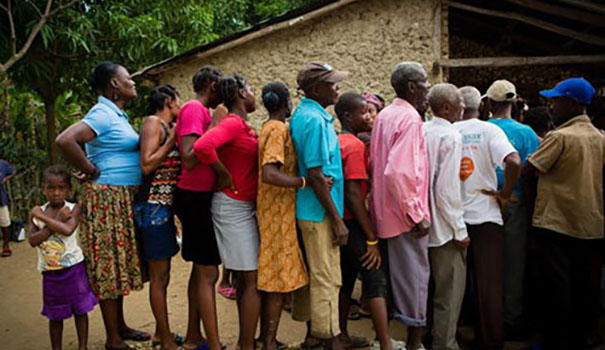
Feuille de route 2030
Une stratégie mondiale pour réduire le nombre de décès dus au choléra et arrêter la transmission du choléra
La stratégie mondiale de lutte contre le choléra vise à réduire de 90 % le nombre de décès dus au choléra et à éliminer la maladie dans 20 pays d’ici 2030.
La Feuille de route mondiale rassemble les gouvernements, les partenaires, les donateurs et les subventionnaires dans un cadre stratégique commun pour éliminer le choléra en se concentrant sur trois axes principaux :

3 domaines d’action stratégiques
Dans les pays touchés par le choléra, notre stratégie consiste à organiser des interventions multisectorielles et simultanées, avec la coordination et le soutien du GTFCC.

Soutenir les objectifs de développement durable des Nations unies
La lutte contre le choléra et sa prévention contribuent à la réalisation des objectifs de développement durable des Nations unies.
En savoir plus sur les ODD
Avec l'engagement des pays, des partenaires et des donateurs, le GTFCC s'efforce d'atteindre les objectifs fixés dans la Feuille de route mondiale.
Feuille de route mondiale Théorie du changement
Détection précoce et réaction rapide pour contenir les épidémies
Une stratégie de prévention ciblée dans les PAMI (aussi appelées « zones à risque »)
Soutien et coordination des ressources humaines, techniques et financières par le GTFCC
Élimination du choléra dans
dans les environnements fragiles
de réduction du nombre de décès dus au choléra
Chaque année, des étapes importantes marquent les progrès accomplis dans la réalisation de notre objectif
Avec le soutien du GTFCC, les gouvernements, les institutions nationales et les collectivités affectées pilotent la mise en œuvre de la Feuille de route mondiale au niveau national. Les plans nationaux de lutte contre le choléra (NCP) sont élaborés par chaque pays pour maîtriser et éliminer le choléra à l’horizon 2030. Les NCP s’appuient sur les initiatives existantes de manière intégrée.

Un plan national de lutte contre le choléra (NCP) est un document complet couvrant tous les aspects des stratégies de prévention et de lutte contre le choléra d’un pays. Tous les ministères, agences gouvernementales et institutions concernés doivent être impliqués dans le processus d’élaboration, de mise en œuvre et de suivi de ce plan.
Plan dynamique et pluriannuel, le NCP énonce les objectifs du pays et présente des actions et des budgets détaillés afin de coordonner les efforts de toutes les personnes qui travaillent à la réalisation de ces objectifs. Pour suivre les progrès accomplis, le pays fixe des points de contrôle intermédiaires et prend des mesures pour élaborer des actions correctives le cas échéant. Le plan de mise en œuvre est réexaminé et révisé régulièrement, au moins une fois par an, et mis à jour en fonction de l’épidémiologie du choléra.

In 2019, an Independent Review Panel (IRP) was set up by the GTFCC to review and endorse National Cholera Plans The Panel is composed by independent and impartial experts appointed by the GTFCC Steering Committee.
En 2019, un comité d’examen indépendant (IRP) a été mis en place par le GTFCC pour examiner et approuver les plans nationaux de lutte contre le choléra. Le comité est composé d’experts indépendants et impartiaux nommés par le comité directeur du GTFCC.
L’IRP est chargé d’évaluer les NCP d’un point de vue technique, en veillant aux éléments suivants :
Télécharger le document d’orientation provisoire pour le NCP
En savoir plus sur le modèle de plan national de lutte contre le choléra